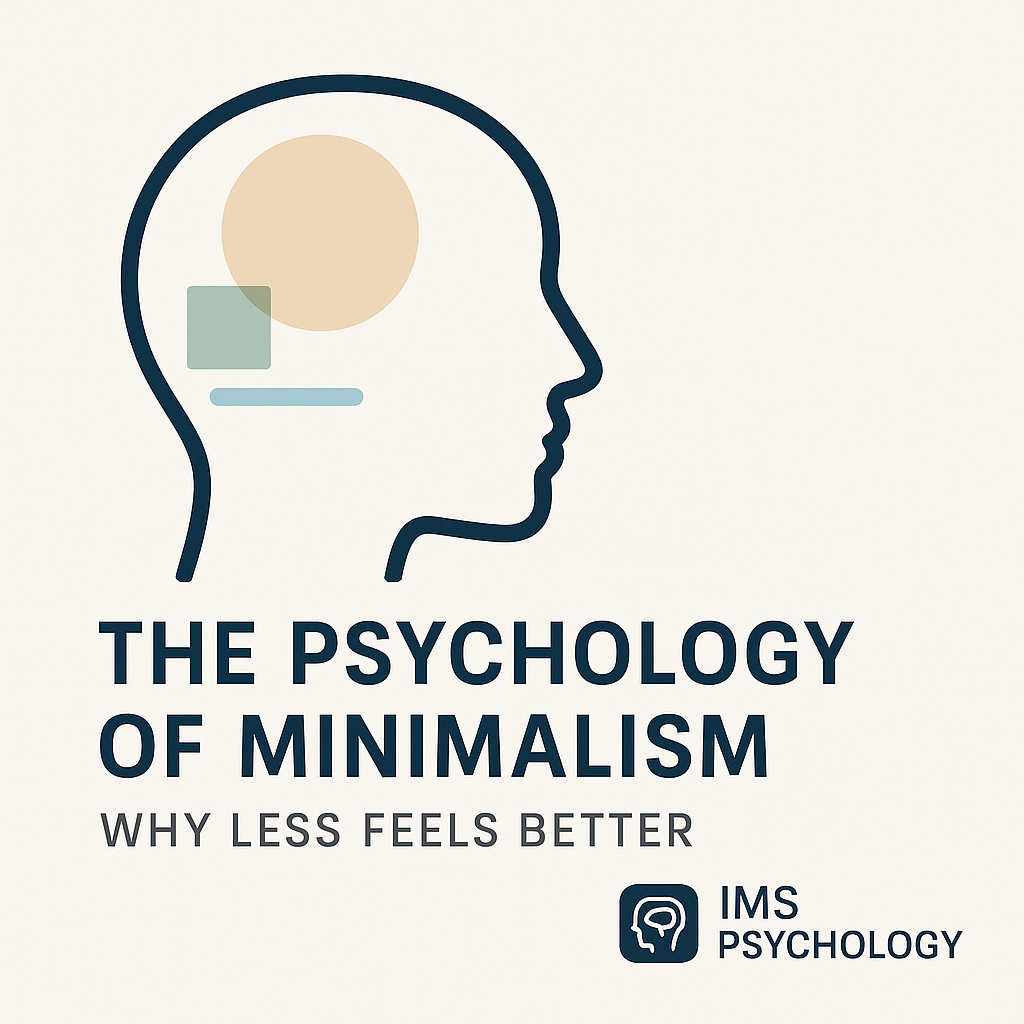
The Psychology of Minimalism: Why Less Feels Better
Share
The Psychology of Minimalism: Why Less Feels Better
Discover the psychology of minimalism. Learn why less can feel better, how clutter impacts mental health, and the science of simplifying life.
Introduction: When Less Becomes More
In a world overflowing with choices, advertisements, and possessions, many people are turning toward minimalism — not just as a design trend, but as a way of living. Minimalism is about intentionally simplifying life by focusing on what matters most.
But why does owning less often feel better? Psychology shows that decluttering isn’t just about clean spaces — it’s about creating calmer minds, more meaningful choices, and a deeper sense of well-being.
The Psychological Roots of Minimalism
1. Decision Fatigue
-
Every item, commitment, or digital notification competes for attention.
-
Psychologist Roy Baumeister’s research on willpower shows that too many choices drain self-control.
-
Minimalism reduces unnecessary decisions, freeing energy for what truly matters.
2. Cognitive Load
-
Clutter increases the brain’s cognitive load, making it harder to focus.
-
Neuroscience studies reveal that messy environments can raise stress hormones and reduce productivity.
-
Minimalism creates mental clarity by reducing visual “noise.”
3. Hedonic Adaptation
-
Humans quickly adapt to new possessions, leading to diminishing satisfaction.
-
Experiences and relationships, not things, provide longer-lasting happiness.
-
Minimalism shifts focus from accumulation to meaningful living.
Why Less Feels Better
1. Freedom from Overwhelm
Owning fewer possessions means fewer things to clean, repair, and manage. This creates space for calm and energy for priorities.
2. Increased Gratitude
Minimalism emphasizes appreciating what you already have instead of constantly chasing more.
3. More Time and Energy
When we buy less and declutter, we save money and reduce time spent maintaining possessions. That time can be redirected toward passions, relationships, or rest.
4. Alignment with Values
Minimalism isn’t about scarcity — it’s about choosing what aligns with personal values. This creates deeper life satisfaction.
5. Emotional Relief
Research shows that clutter can trigger shame, guilt, and stress. Letting go creates psychological release and self-compassion.
The Minimalist Mindset vs. Decluttering Alone
Minimalism isn’t just about donating old clothes or organizing your home. It’s a mindset:
-
Decluttering: Focused on cleaning up spaces.
-
Minimalism: Focused on intentionally shaping life around values, priorities, and well-being.
This shift explains why minimalism often leads to sustained happiness instead of temporary relief.
Practical Steps to Embrace Minimalism
-
Start Small – Begin with one drawer, digital folder, or daily routine.
-
Apply the “Joy Test” – Ask: Does this add value or meaning to my life?
-
Limit Inputs – Reduce digital clutter by unsubscribing from unnecessary emails or apps.
-
Set Boundaries – Buy intentionally, not impulsively.
-
Focus on Experiences – Invest in activities, learning, or relationships instead of material goods.
-
Practice Mindful Consumption – Pause before purchases to ensure alignment with values.
Minimalism and Mental Health
-
Reduces Anxiety: Less clutter reduces overstimulation and promotes calm.
-
Supports Focus: Cleaner environments improve concentration.
-
Boosts Self-Identity: Living intentionally reinforces self-awareness and authenticity.
-
Encourages Self-Compassion: Choosing simplicity over perfectionism eases inner pressure.
Conclusion: A Simpler Path to Fulfillment
Minimalism is more than owning fewer things — it’s about creating space for clarity, purpose, and joy. By reducing clutter and focusing on what truly matters, we lighten our mental load and strengthen emotional well-being.
If you’d like guided exercises to bring psychology-backed minimalism into your daily life, explore our Mindfullness Tools at IMS Psychology.
written by,
Martin Rekowski (28.09.2025)
-
External link suggestion: APA – How Clutter Affects Your Mind
- https://www.apa.org/search?query=%20Clutter